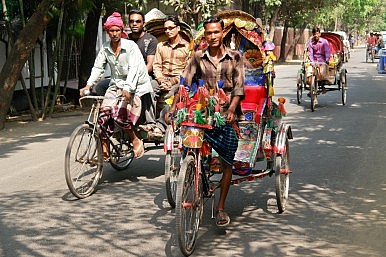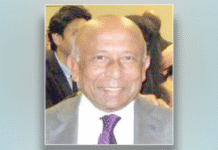By Abdur Rashid
Has the West overreacted to the recent murders of two foreign nationals?
The recent murders of two foreign nationals in Bangladesh touched off a minor bout of hysteria in the West. The U.K. proclaimed a “high threat from terrorism” in Bangladesh. The U.S. discouraged its citizens from attending public gatherings in the country. Australia’s national cricket team postponed its long-anticipated visit to Dhaka, the nation’s capital.
Caution makes sense in these volatile times. But impulsive travel advisories, though well intentioned, proved in this case to be ill advised and unnecessary.
Less than a week after the shooting of an Italian national in Dhaka, German Federal Minister Gerd Müller touched down in Bangladesh and openly flouted the freshly posted travel advisories. Müller stuck to his itinerary and, with a high-profile German delegation in tow, toured several of Bangladesh’s garment factories, met with local workers, and helped create the country’s first national employment insurance framework. All went well.
Bangladesh, in fact, is one of the safest countries in the region. According to the South Asia Terrorism Portal, Bangladesh went from 404 extremist-related deaths in 2013 to 37 this year. The country’s rapid action battalions routinely monitor and arrest would-be attackers. No major violent incidents have occurred in more than six years. The recent, senseless criminal acts against foreigners are clearly isolated incidents. Nonetheless, they have prompted the Bangladeshi government to redouble its counter-terrorism efforts, and to good effect.
A recent United Nations Office on Drugs and Crime (ONDC) study ranks Bangladesh as the safest of all South Asian countries, including India, with homicide and robbery rates of 2.7 and 0.6 per 100,000 citizens, respectively. This is roughly the same as in urban areas in the United States. Gallup’s 2015 “Global Law and Order Report” found that Bangladeshis feel safer than their American and Australian counterparts.
That’s clearly why nearly 3,000 more foreigners entered than left Bangladesh from mid-September to mid-October despite international expressions of concern. In particular, the regional head of retail banking for Standard Chartered Bank Limited and a delegation from Rolls Royce safely visited Dhaka in October.
Nonetheless, vaguely worded travel advisories too often have an outsized impact on local economies and social cohesion. Consider the case of Kenya last year. On May 15, hundreds of Britons left Mombasa after the British government issued a warning against “nonessential travel” to the city because of terrorism threats. No attack occurred in Mombasa. The Kenyan government labeled the travel advisory “economic sabotage” and locals in Mombasa lamented the devastation of its tourism industry.
Enemies of the West and Bangladesh would like to use the murders to isolate Bangladesh from the international community and cripple the Bangladesh economy. Opposition parties Bangladesh National Party and Jamaat-e-Islami sensationalized the crimes by claiming the collapse of “law and order.” The mere intimation of ISIS involvement – which turned out to be false – stoked a frenzy of vermillion-tinged words about Bangladesh across cyberspace.
But the facts are quite different. As the survivor of a bomb blast at a 2004 rally that killed 21, Prime Minister Sheikh Hasina adopted a “zero-tolerance” policy toward terror after she took office in 2009. Since then, incidents of terrorism have dropped precipitously.
According to the World Travel and Tourism Council, Bangladesh derives 4.1 percent of its gross domestic product and close to 2 million jobs directly from tourism-related industries and services. More important, travel and tourism’s total contribution to the gross domestic product is projected to be among the highest in the world over the next decade in Bangladesh – nearly 7 percent of GDP. Erecting fictitious bogeymen that scare away foreign capital and visitors is a very direct and harmful economic problem.
Bangladesh is not immune from terrorist threats, of course. But recent travel advisories have been a misdirected over-reaction. Foreign visits to Dhaka and the rest of Bangladesh by diplomats such as Müller send a far better message – that Bangladesh and its allies in the West will not be intimidated by rare acts of criminality and hand the perpetrators the victory they desperately crave.
The world recognizes the safety and promise of Bangladesh, as evidenced by the International Cricket Council’s recent vote to hold the Under 19 Cricket World Cup in Bangladesh in 2016. Clear messages such as this are what will transform Bangladesh and not loosely written travel advisories directed at threats that are not really there.
Abdur Rashid is a retired major general of the Bangladesh Army. He is now Executive Director of the Institute of Conflict, Law & Development Studies in Dhaka and a security and strategic analyst.
Source: The Diplomat










